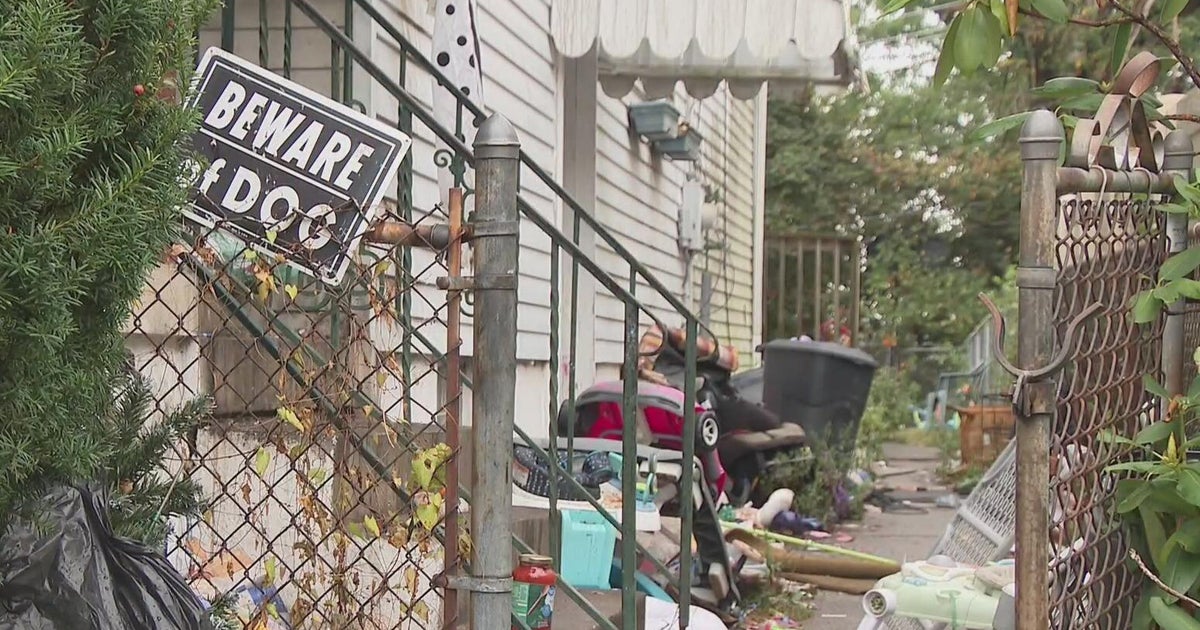Pennsylvania
Report: ‘Secret chemicals’ used in Pennsylvania gas and oil

Oil and gas companies in Pennsylvania are likely using dangerous forever chemicals in fracking wells, without having to legally disclose this to the state. This is making it difficult for vulnerable communities to know if they are at risk of contamination and health issues.
In a report published this week from environmental health group Physicians for Social Responsibility (PSR), specialists analyzed data from fracking disclosures made by oil and gas well operators to FracFocus, a non governmental organization. They found that the fossil fuel industry used about 160 million pounds of undisclosed chemicals in about 5,000 unconventional oil and gas wells throughout the state from 2012 to 2022. The study includes a link to an interactive map of these sites, which are concentrated in Pennsylvania’s northern and far west counties.
“Oil and gas companies injected more than 1,200 wells with incompletely identified chemicals that could be fluorosurfactants, a class of chemical that includes multiple PFAS,” wrote the authors of the report.
During fracking, companies inject a mix of sand, water, and chemicals into the Earth’s crust. This “fractures” the rock, allowing companies to extract oil or natural gas from deep in the ground. Sadly, some of the chemicals used can include PFAS, also known as per- and poly-fluoroalkyl substances. Often referred to as “forever chemicals,” they are notorious for their inability to break down over time, persisting both in nature and the human body. Nearly 15,000 chemicals found in everyday products, such as clothing and cookware, fall under the classification of PFAS. Long term chemical exposure has been linked to cancer, infertility, birth defects, and more.
“These ‘forever’ chemicals are far too dangerous to be set loose in the environment,” Barbara Gottlieb, one of the report’s coauthors said in a statement. “Once this toxic genie is out of the bottle, there is no putting it back.”
Unfortunately, Pennsylvania’s current legislation allows companies to withhold information about the chemicals they use if disclosing such details would put them at a competitive disadvantage, the Pittsburgh Post-Gazette reported. According to the report, there have been very few reported instances of companies using PFAS to state authorities.
For example, only two companies reported the use of a single PFAS called PTFE in eight unconventional gas wells in the last decade, report authors wrote. And because so much is unknown, communities near the oil and gas wells and rural households may be exposed to these harmful chemicals without knowing. And even if only a fraction of the unidentified chemicals used in Pennsylvania’s wells are PFAS this still poses a major threat to public health, the report warned.
In response to the report’s publication, a coalition of organizations in the state published a letter to Pennsylvania Governor Josh Shapiro. They urged him and elected officials to adopt policies similar to ones passed in Colorado, which banned the use of PFAS for oil and gas extraction. “We believe that Pennsylvania can—and must–take these common-sense steps to protect the public from PFAS and other toxic chemicals used in oil and gas wells,” the letter said.
Related article: Industry Documents Show Corporate Ghouls Knew About Forever Chemicals for Decades
The country’s growing concern over PFAS contamination goes back decades. This is partially because major companies that produce PFAS buried evidence of medical issues associated with the chemicals for years. But the public is becoming increasingly aware and major chemical companies have been compelled to pay substantial sums in damages. Just this year, major chemical manufacturer 3M agreed to pay out more than $10 billion in settlements over contaminated water.
Federal agencies are stepping up, too. Earlier this year the U.S. Environmental Protection Agency (EPA) announced a proposal to regulate PFOA and PFOS, which are two very common forms of PFAS. Some states have independently placed limits on PFAS levels in drinking water, but there is still no federal limit for the thousands of chemicals that could end up in water supplies. And the EPA’s proposal comes after years of unsuspecting communities being exposed to the chemicals.
“We are all at risk thanks to lack of transparency about what our government knows, waste truck-sized holes in reporting systems, and lack of accountability when drillers don’t bother reporting anything at all,” Karen Feridun, the co-founder of the Better Path Coalition said in a statement on the report. “The system is gamed in favor of the polluter. It just makes the case for an end to drilling stronger.”
Want more climate and environment stories? Check out Earther’s guides to decarbonizing your home, divesting from fossil fuels, packing a disaster go bag, and overcoming climate dread. And don’t miss our coverage of the latest IEA report on clean energy, the future of carbon dioxide removal, and the invasive plants you should rip to shreds.

Pennsylvania
Pennsylvania mom charged after police find 6 kids, over a dozen pets living in filth
Pennsylvania
Two on ‘Ten Most Wanted’ in Pennsylvania arrested, $5K reward for new tips

Pennsylvania
The Pretzel Capital Of The World Is Located In This Pennsylvania City

We may receive a commission on purchases made from links.
Believe it or not, the pretzel capital of the world is not in Munich or Würzburg, but rather in the small Pennsylvania city of Reading. In the 1700s, German immigrants who moved to Pennsylvania brought with them a love of soft, lye-boiled, hand-twisted breads. These immigrants settled in areas like Lititz and Lancaster, where early bakers laid the foundation for large-scale commercial pretzel making.
According to the Berks History Center, Julius Sturgis opened a commercial pretzel bakery in Lititz, near Reading, in 1861, widely credited with being the first. However there are also reports that a man named Benjamin Lichtenthaler built the first such bakery in 1860, or that a baker named John Sauermilch set up shop even earlier, around 1846.
Regardless, what is certain is that the city attracted a host of pretzel makers, and by the late 19th century, dozens of bakeries operated across the city, producing everything from traditional twists to innovative pretzel sticks. According to a local history website, at one point, Reading was home to 26 different bakeries, which earned it the nickname “Pretzel City.” By the 1940s, Reading was responsible for producing one-third of all pretzels baked in the United States. According to a local tourism guide, Pennsylvania continues to dominate the pretzel industry today, with about 80% of U.S. pretzels made in the state.
Read more: Foods Anthony Bourdain Hated With A Passion
From pretzel twists to pretzel sticks
A bunch of salty pretzel sticks. – Bhofack2/Getty Images
Prior to ever reaching U.S. shores, pretzels were popular in western Europe as soft breads, with that characteristic twist. But once they reached the U.S. their form and texture began to shift. The Tom Sturgis company (operated by descendants of the original Julius Sturgis) states it produced the first crisp, hard pretzels in the U.S. While soft pretzels remain beloved, hard pretzels became the industry standard as they are easier to store and ship.
Other companies such as Unique Snacks, and Faller’s Pretzels established themselves in Reading and surrounding Berks County and similarly began experimenting with these hard pretzels. Faller’s Pretzels became known for thin crunchy pretzel sticks, cut to snacking size.
From pretzel twists dipped in chocolate or pretzel nuggets stuffed with peanut butter, Pennsylvania bakeries keep reinventing a centuries-old snack. Today’s pretzel aisles are filled with modern spins, like pretzel sandwich buns, and super light extra thins. And let’s not forget, the introduction of the butter pretzel — which adds shortening to the dough for a richer, more indulgent taste — is a distinctly modern twist on the original austere recipe.
Ways to enjoy your salty Reading treat

A handful of crunchy pretzel twists. – New Africa/Shutterstock
The enduring appeal of pretzels lies in their remarkable salty flexibility. If you’re seeking a traditional, hands-on experience, you can easily make soft pretzels at home, using a bit of lye to achieve that fresh chewy taste.
However if you want to enjoy the crunchy hard-baked Reading speciality, there are endless options. Try crushing hard pretzels for a salty pie crust that goes great with a creamy pumpkin cheese cake and delivers an unreal sweet-and-salty combo. Or crumble some pretzel sticks on top of a rich baked mac and cheese right before you put it in the oven for a crispy crust. Similarly add a fine layer of crushed pretzel dust to your next shepard’s pie for a crunchy finish. Of course, the simplest and perhaps most authentic way to enjoy this Pennsylvania specialty remains enjoying them in their purest form: straight from the bag as a perfectly portable and satisfying snack.
Want more food knowledge? Sign up to our free newsletter where we’re helping thousands of foodies, like you, become culinary masters, one email at a time.
Read the original article on Food Republic.
-

 Finance5 days ago
Finance5 days agoReimagining Finance: Derek Kudsee on Coda’s AI-Powered Future
-

 Business1 week ago
Business1 week agoHow Nexstar’s Proposed TV Merger Is Tied to Jimmy Kimmel’s Suspension
-
North Dakota5 days ago
Board approves Brent Sanford as new ‘commissioner’ of North Dakota University System
-
World1 week ago
Russian jets enter Estonia's airspace in latest test for NATO
-

 Crypto4 days ago
Crypto4 days agoTexas brothers charged in cryptocurrency kidnapping, robbery in MN
-

 World4 days ago
World4 days agoSyria’s new president takes center stage at UNGA as concerns linger over terrorist past
-

 Technology4 days ago
Technology4 days agoThese earbuds include a tiny wired microphone you can hold
-

 Culture4 days ago
Culture4 days agoTest Your Memory of These Classic Books for Young Readers





















